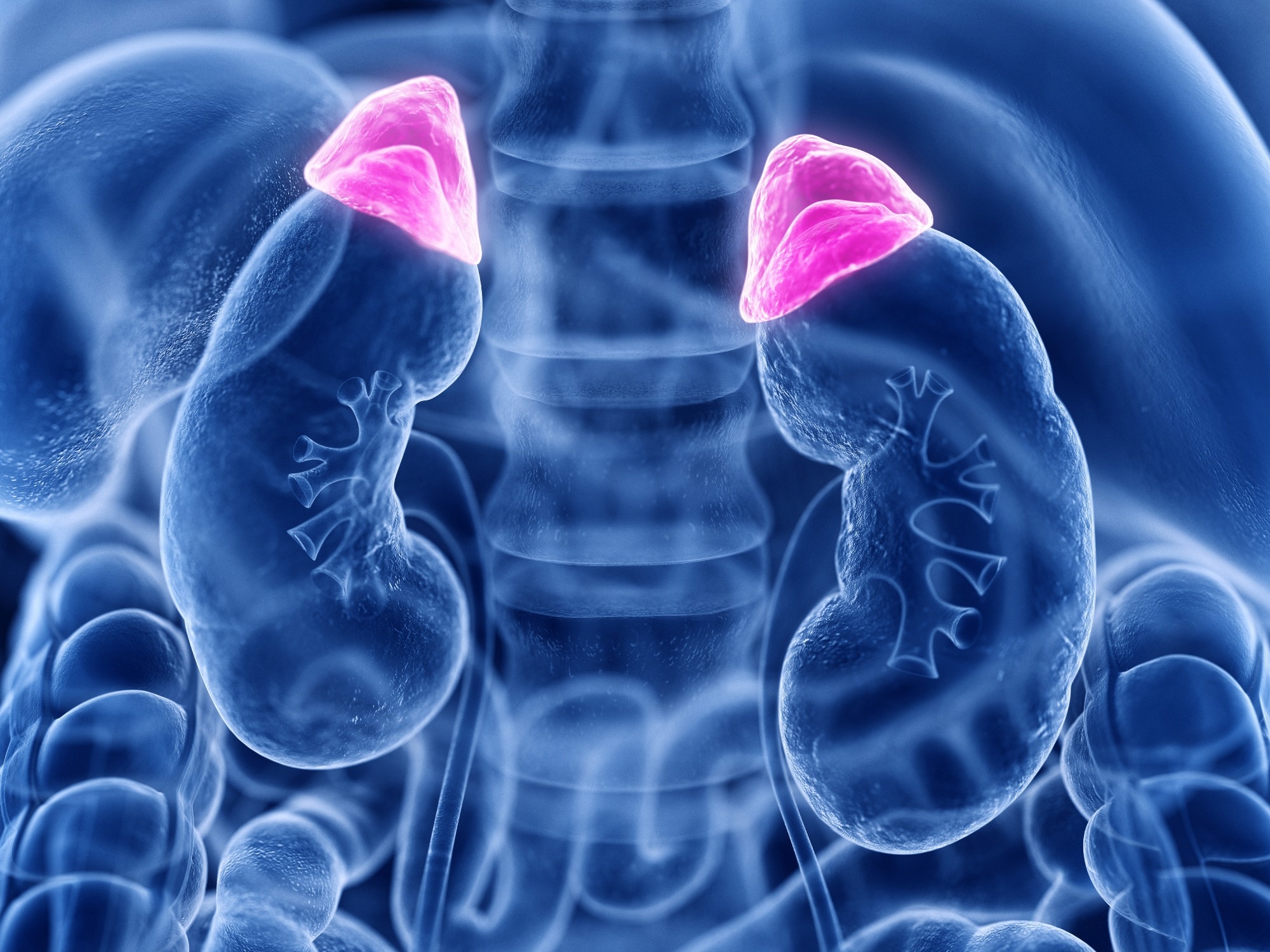Introduction
Symptoms of Addison's disease
How the body triggers hyperpigmentation
Prevalence
Other symptoms of Addison's disease
Treatment of Addison's disease
References
Further reading
Addison's disease, also known as primary adrenal insufficiency, is an endocrine disorder where insufficient amounts of cortisol and aldosterone hormones are produced by the adrenal glands. Cortisol is commonly referred to as the “stress hormone” and is involved in several mechanisms in the body.
Aldosterone, on the other hand, assists in blood pressure regulation. Addison's disease is a rare condition with various general symptoms, including weight loss, nausea, abdominal pain, low blood pressure, fatigue, and weakness. One key distinctive symptom of the disease is that it can lead to hyperpigmentation or darkening of the patient's skin.
 Image Credit: SciePro/Shutterstock
Image Credit: SciePro/Shutterstock
Symptoms of Addison's disease
The darkening of the skin in Addison's disease is sometimes referred to as “bronzing ” and usually develops in the areas of the skin that are exposed to direct sunlight. For the patient, the particular coloring will appear unnatural.
It can also take hold in the areas where the skin feels the most pressure, such as the knuckles, knees, palms, soles, armpits, nipples, and areas with folding skin. Skin color changes can be the first sign of Addison's disease, but this symptom is not always present in every patient.
Another sign of the condition in some people is the presence of black freckles on the forehead, face, and shoulders.
Pigmentation of the gums, referred to as “intraoral pigmentation,” sometimes occurs before skin bronzing and can be the first initial sign of the disease. Addison's disease can develop fairly slowly in patients and form in more and more areas as it progresses, so it may not be recognized during its early stages.
How the body triggers hyperpigmentation
The pituitary gland, which is located at the base of the brain, produces hormones that regulate the endocrine system as well as the adrenal glands. It will produce the hormone adrenocorticotropic hormone (ACTH) to tell the adrenal glands to release cortisol when the body is stressed.
In the development of Addison's disease, the skin changes, and the adrenal glands gradually make less and less cortisol and aldosterone. To attempt to provide balance, the pituitary gland overcompensates by making more ACTH, beta-endorphin, and melanocyte-stimulating hormone (MSH) from the protein pro-opiomelanocortin (POMC).
The greater production of MSH leads to the over-stimulation of melanocytes which are the melanin-producing cells that provide color (melanin) to the skin. Overproduction of melanocytes leading to more melanin will result in a person having a darker complexion than what is natural.
Addison's Disease - Overview (clinical features, pathophysiology, investigations, treatment)
Prevalence
Around 8,400 people have Addison's disease in the UK. It is slightly more common in women than men and is most prevalent in those aged 30 to 50. Similarly, Addison's disease is also very rare in the US; about 1 in every 100,000 people have the condition.
Other symptoms of Addison's disease
There are two common symptoms of Addison's disease other than hyperpigmentation. These include:
Vitiligo
The skin condition vitiligo can also appear simultaneously with idiopathic autoimmune Addison's disease. Lighter areas of pigmentation form with vitiligo and can start as a few small spots and develop into bigger areas. These areas may also be itchy for the patient, but in general, the condition is fairly benign.
Hair loss
Some patients will also start to lose hair in their armpits and pubic areas due to a lack of androgen hormones, also formed in the adrenal glands, which promote hair growth.
 Image Credit: Vikky Mir/Shutterstock
Image Credit: Vikky Mir/Shutterstock
Treatment of Addison's disease
The treatment for the skin symptoms of Addison's disease is generally the same as treatment utilized for other symptoms of the disease. First, the patient needs deficient hormones replaced or substituted through hormone replacement therapy.
Also, the patient may be prescribed oral hydrocortisone, prednisone, or cortisone acetate tablets.
Sometimes the patient will need a corticosteroid injection if they are unable to swallow or stomach tablets.
References
Further Reading
Last Updated: Oct 28, 2022